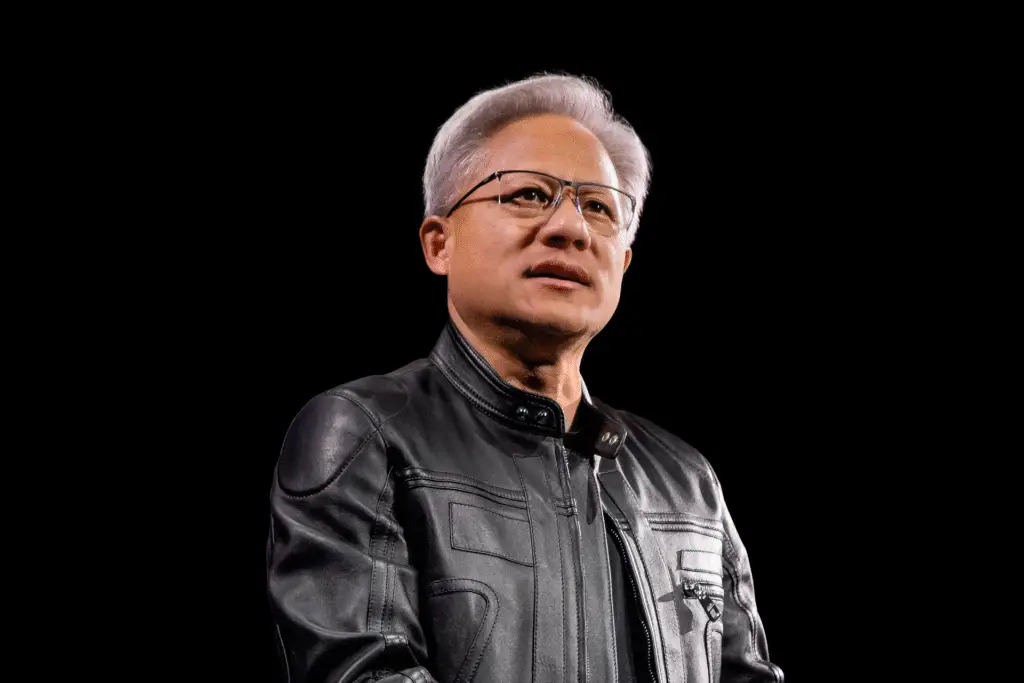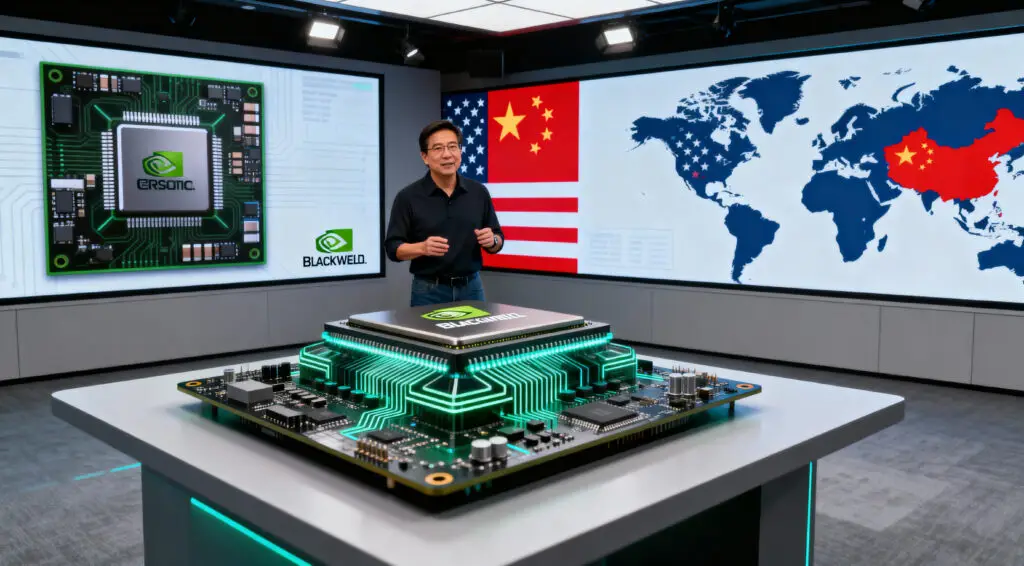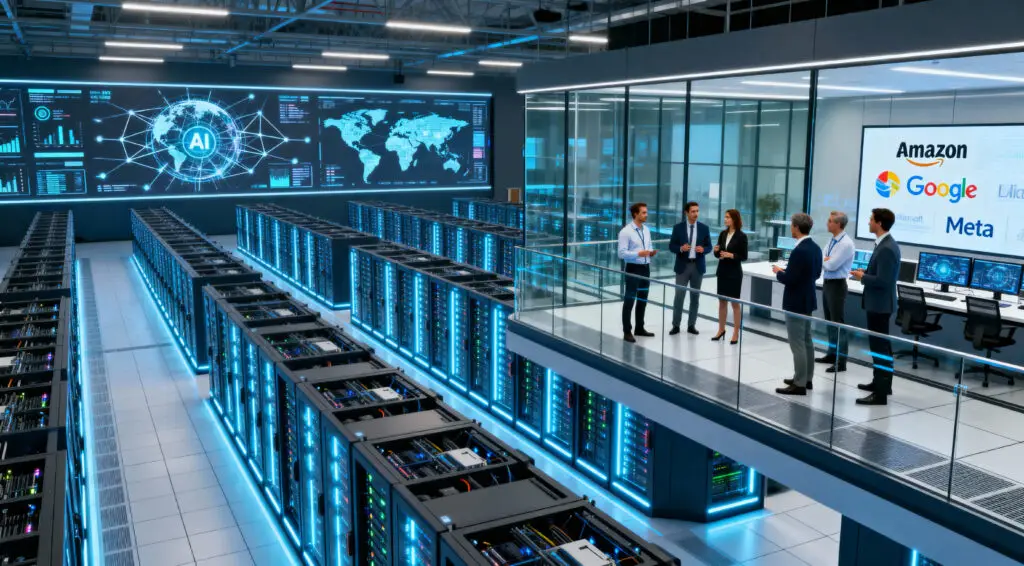Huang Expresses Optimism for Future Blackwell Chip Exports
Jensen Huang expressed optimism regarding Nvidia’s potential to sell Blackwell chips in China, emphasizing the importance of global collaboration in technology to maintain fairness among economic competitors. He noted that the final decision on the export approval will rely on President Trump’s judgment, highlighting the complexities of current geopolitical regulations governing chip distribution.
Additionally, Huang appreciated the constructive dialogue between President Trump and Chinese President Xi Jinping, viewing their meeting as a positive development that could lead to the resolution of trade issues beneficial to the semiconductor industry. This reflects Nvidia’s commitment to responsible innovation that serves mutual interests across nations.

Export Controls Continue Restricting China’s AI Advancement
The U.S. government has severe rules for exporting powerful AI chips. The goal of these restrictions is to stop the transfer of military or dual-use technologies to other countries. Washington says that restricting chip sales is in the best interest of national security since there is a lot of rivalry in the field of high-performance computer technologies.
Nvidia has continued to be proactive about following the rules and making changes, even though there are rules in place. The business is always changing its product lines to meet international requirements and stay legal in the market. This shows that Nvidia is strong enough to balance innovation, compliance, and keeping its company running throughout the world.
Nvidia Pursues Legal Pathways to Maintain China Presence
Huang said again that Nvidia is committed to doing business in China in a legal way. He talked about possible ideas that would make businesses function better with national rules. Nvidia is still asking both governments for more information to help create a trading climate that is open, predictable, and fair.
The CEO also talked about how Nvidia is still working to keep good connections with private Chinese tech companies. Nvidia wants to strengthen the benefits of free competition under clear and ethical rules by encouraging responsible technology exchange and cooperative growth.
Recommended Article: Samsung and NVIDIA Join Forces to Build Global AI Megafactory
H20 and Future Chips Define Market Adjustment Strategy
Nvidia has made modified versions of its processors for China to stay inside export constraints. These variations stay competitive while yet following Washington’s rules for advanced AI capabilities. The H20 chip is the most recent illustration of how Nvidia can adapt to complicated policy situations.
Sources say that Nvidia’s next design will employ Blackwell architecture that has been changed to meet regulatory requirements. It offers better efficiency and strategic compatibility for China’s changing digital infrastructure, even if it is less powerful than unconstrained versions.
China’s Shifting Focus to Domestic Semiconductor Growth
Beijing’s strategy has changed to help indigenous semiconductor makers, especially Huawei. The government is now against relying on foreign suppliers, which shows that the economy is moving toward becoming more independent in terms of technology. This work is part of a long-term goal to make high-performance AI hardware development self-sufficient.
Huawei’s comeback has gotten a lot of attention throughout the world since it can compete with Nvidia. The company’s new AI system design is a turning point in China’s semiconductor race, making competition and the need for fresh ideas more urgent throughout the world.
Huang Warns Against Underestimating Chinese Competitors
Huang said that China’s technology is getting better and better and commended Huawei’s quick progress. He said not to underestimate how committed they are to being competitive in AI chips throughout the world and how innovative they are. His comments show that he has a realistic view of how IT ecosystems work throughout the world and how companies compete with one another.
He said that ignoring China’s ability is a sign of bad judgment and old ideas. Huang added that businesses like Huawei are a big problem for established Western corporations because they have a lot of resources, government support, and are always coming up with new ideas.
Balancing Security, Innovation, and Global AI Cooperation
The continuous dispute between innovation and national security continues to shape U.S.–China technology policy. Huang supports collaboration that is fair and protects security while also helping both sides make technical advances. He thinks that curbing trade will ultimately slow down global growth and make markets less efficient.
For now, Nvidia is cautiously hopeful about how policies may change under Trump’s administration. The final verdict will decide if the Blackwell architecture can reach Chinese businesses. This might change the way AI hardware companies compete throughout the world for years to come.























